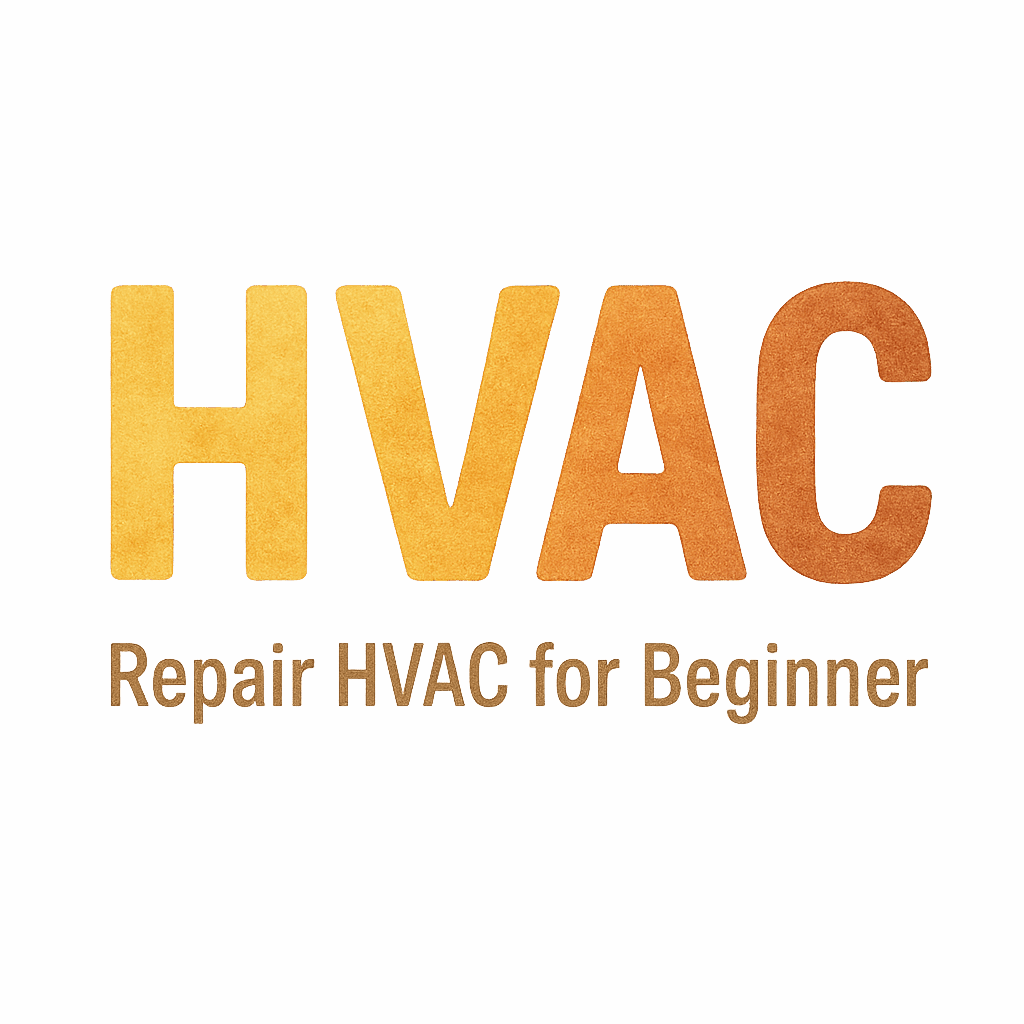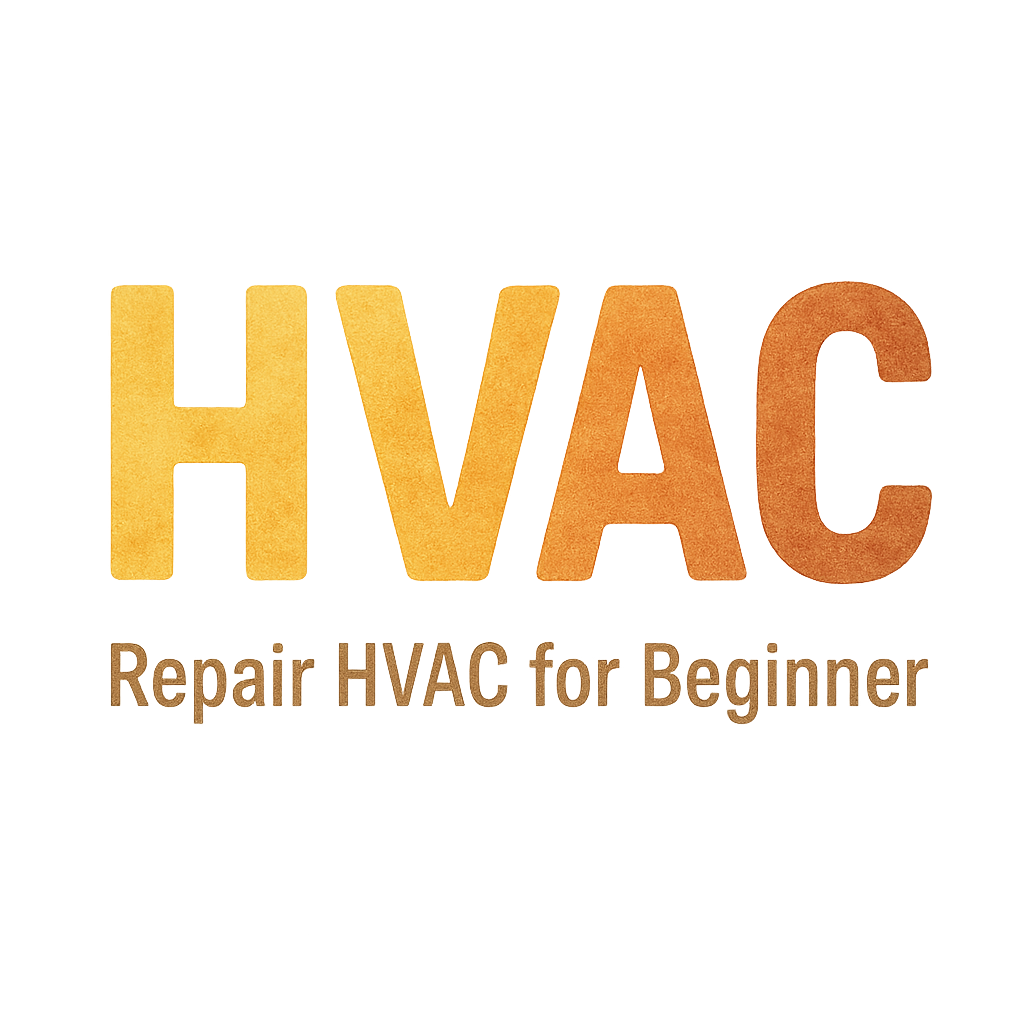Introduction: Why HVAC Noise Matters
If your HVAC system starts making unusual sounds, it can be more than just annoying. It can also be a sign that something isn’t working properly. Understanding these noises can help you identify problems early, which in turn can prevent costly repairs or system failure. HVAC noises range from a gentle hum to a loud bang, and each sound has its own potential causes. In this article, we’ll explore the five most common HVAC noise problems and what they mean.
To get started, if you’re unfamiliar with HVAC systems, it’s worth understanding the basics of how they work. You can read more about HVAC fundamentals in our HVAC Basics for Beginners guide.

1. Rattling or Banging Noises: What’s Going Wrong?
When you hear rattling or banging noises coming from your HVAC system, it usually signals a loose or damaged component. Ignoring these noises can lead to bigger, more expensive issues.
Possible Causes of Rattling Noises
- Loose Parts: Over time, screws or bolts inside your HVAC system can loosen, causing parts to rattle.
- Debris in the System: Leaves or dirt can get stuck in the blower or ducts, causing noise as the system operates.
- Damaged Fan Blades: If the fan blades are misaligned or bent, they can produce a rattling sound when they spin.
How to Fix Rattling Noises
- Check for Loose Parts: Tighten any screws, bolts, or other components that may have come loose. Regular maintenance can help prevent this.
- Clean the Ductwork and Filters: Ensure that air ducts and filters are clear of debris that could be causing the noise. You can read more about maintenance and cleaning to keep things running smoothly.
- Inspect the Fan: If the fan blades are bent or damaged, it may be time to replace them. Learn more about HVAC troubleshooting for detailed advice.
DIY Fixes vs. Professional Help
While you can address simple issues like tightening parts and clearing debris yourself, more complex problems—such as replacing a damaged fan—may require the expertise of a professional HVAC technician. Don’t hesitate to reach out if you’re unsure about the severity of the issue.
2. Hissing Noises: The Mystery Behind It
Hissing sounds are often linked to refrigerant leaks or airflow issues, both of which need immediate attention. These noises can indicate a problem that’s worsening, so it’s important to diagnose them as quickly as possible.
Common Causes of Hissing Sounds
- Refrigerant Leaks: If the noise is coming from the air handler, it could mean a refrigerant leak. This is a serious issue that affects your HVAC system’s efficiency.
- Air Leaks: Leaks in your ductwork or vents can also create hissing as air escapes from the system.
How to Diagnose Hissing Noises
- Check the Refrigerant Lines: If the noise seems to come from the air handler or cooling unit, it could be a refrigerant leak. Learn more about HVAC system diagnosis to help you pinpoint this problem.
- Inspect the Ductwork: Look for cracks or loose connections that might be allowing air to escape. This can often lead to a loss in efficiency, which you can read more about in our article on common HVAC problems.
Is It a Refrigerant Leak or Something Else?
If you suspect a refrigerant leak, it’s crucial to call a professional HVAC technician immediately. Refrigerant leaks not only make your system work harder, but they can also lead to system failure. A professional repair should be performed to address the issue.
3. Whistling Noises: A Silent Trouble Maker
Whistling noises in an HVAC system can be subtle, but they’re often a sign of airflow issues or obstructions. If left unchecked, they can reduce the efficiency of your HVAC system, increasing energy costs.
Why Do HVAC Systems Whistle?
- Airflow Restrictions: If your ducts are too narrow or clogged, the air may whistle as it passes through. Check out our HVAC maintenance tips to prevent airflow blockages.
- Dirty Air Filters: A clogged filter restricts airflow and can cause whistling noises. Regularly changing your filters can help avoid this.
How to Fix Whistling Noises in HVAC
- Clean or Replace the Air Filters: Dirty filters are one of the most common causes of whistling. Replace or clean your filters regularly. You can find more tips on keeping your system clean in our maintenance and cleaning guide.
- Check the Ductwork: Ensure the ducts are properly sized and free from blockages. Visit our HVAC tools and equipment page for advice on tools to help you inspect your ducts.
Adjusting Ductwork and Airflow
If airflow problems persist, you may need to hire a professional to inspect the ducts and make necessary adjustments. Find more about HVAC troubleshooting for guidance.
4. Screeching or High-Pitched Noises: What to Do?
High-pitched screeching sounds are typically caused by mechanical problems within the system, such as worn-out belts or a malfunctioning fan. These issues should be addressed as soon as possible to avoid further damage.
Mechanical Problems Causing High-Pitched Noises
- Worn-out Belts: Over time, belts inside your HVAC system can wear out, causing a high-pitched screeching noise. Regularly inspecting belts as part of your monthly HVAC care can help prevent this.
- Fan Problems: Misaligned or malfunctioning fans may also produce high-pitched whines.
Steps to Take If You Hear High-Pitched Noises
- Check the Belts: Inspect belts for signs of wear and tear. If they are damaged, replace them immediately.
- Examine the Fans: Ensure the fan is properly aligned and functioning. You can read more about HVAC repair tips to help with the inspection.
When to Call an HVAC Technician
If you’re unable to resolve the issue with simple fixes, it’s time to call in a professional. A technician can diagnose the exact source of the noise and make the necessary repairs. You can learn more about repair mistakes to avoid and ensure you’re getting the best service.
5. Clunking or Thumping Sounds: The Root Causes
Clunking or thumping noises are often linked to problems with the blower or motor. These sounds can be loud and unsettling, but they’re usually a sign of mechanical malfunction.
Is It the Blower or the Motor?
- Loose Blower Wheel: A loose or unbalanced blower wheel can create thumping or clunking sounds. You can prevent this by regularly checking the blower as part of your HVAC maintenance.
- Damaged Motor: If the motor is the source of the noise, it might need repair or replacement. A malfunctioning motor can lead to poor airflow and reduced system efficiency.
What Causes Thumping Noises and How to Fix Them
- Tighten or Replace Blower Components: If the blower wheel is loose, tighten it or replace it if necessary.
- Repair or Replace the Motor: If the motor is faulty, it may need to be repaired or replaced to restore proper function. You can learn more about how to repair HVAC safely to ensure you’re taking all necessary precautions.
Replacing Damaged Parts and Components
Damaged parts like the blower or motor can often be replaced. If you’re unsure how to handle the repairs, contact an HVAC technician who can guide you through the process.
Conclusion: Don’t Ignore HVAC Noises
HVAC noises are more than just an inconvenience—they often point to underlying issues that can affect the efficiency of your system and increase repair costs down the line. Whether it’s a rattling sound or a high-pitched screech, understanding what these noises mean can help you take action before the problem escalates. Regular maintenance, like checking filters and tightening components, can go a long way in preventing HVAC noises. If the problem persists, don’t hesitate to consult a professional to ensure your system runs smoothly.
FAQs: Addressing Common HVAC Noise Concerns
1. Why does my HVAC make noise after turning on?
It’s common for HVAC systems to make noise when they start up. However, if the noise is loud or unusual, it could be due to loose parts or airflow issues. Check out our HVAC troubleshooting tips for more.
2. Can I fix HVAC noise problems myself?
Some minor issues, like cleaning filters or tightening loose parts, can be fixed by homeowners. However, more complex problems like refrigerant leaks or motor issues require professional expertise. Learn more about HVAC maintenance for DIY fixes.
3. Should I be concerned about loud HVAC noises?
Yes, loud or persistent noises usually indicate an issue that needs attention. Ignoring them can lead to more significant problems and higher repair costs.
4. How do I know if my HVAC system needs professional repair?
If you’re unable to fix the issue or if the noise continues despite your attempts, it’s time to call a professional. Check our repair tips to ensure you’re making the right choice.
5. Can HVAC noise affect energy efficiency?
Yes, HVAC noises often point to inefficiencies in the system, such as airflow restrictions or mechanical malfunctions, which can raise energy bills. Regular maintenance can help avoid this.
6. What tools can I use to identify HVAC noise sources?
Basic tools like a flashlight, screwdrivers, and a multimeter can help identify the source of the noise. For advanced diagnostics, it’s best to consult an HVAC professional. Learn more in our tools and equipment guide.
7. How do I prevent HVAC noise in the future?
Regular maintenance, such as cleaning filters, inspecting ducts, and ensuring all components are secure, can help reduce the likelihood of future HVAC noise problems. Visit our HVAC maintenance page for detailed advice.
Ask ChatGPTTools


